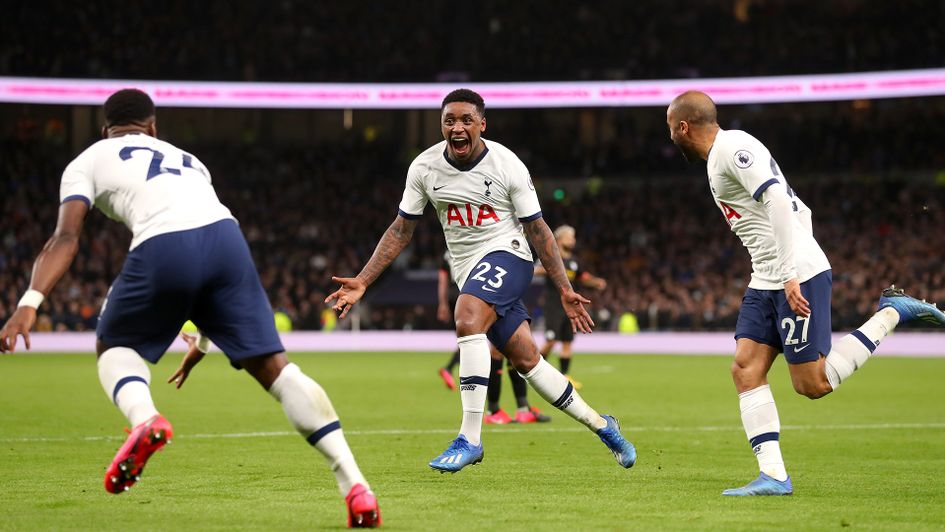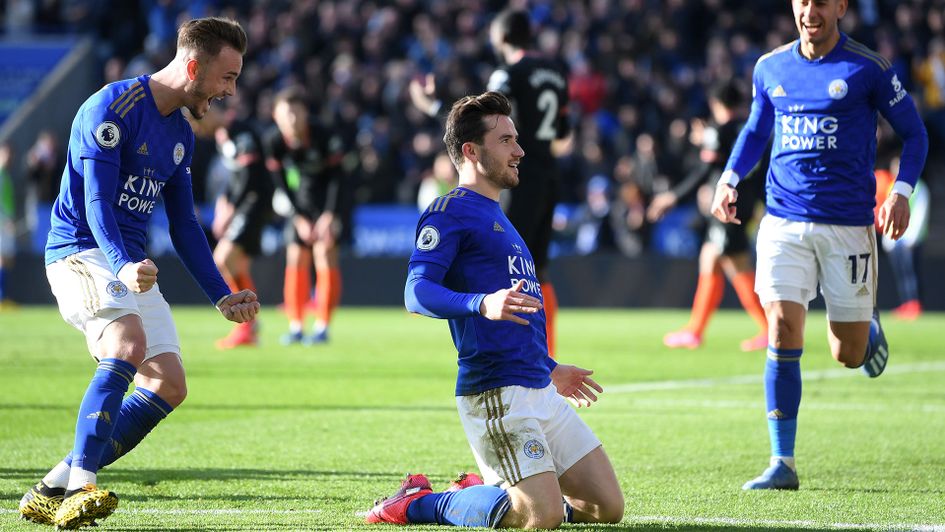Alex Keble runs through the best and worst of the tactical decisions from the weekend's latest round of Premier League games.
Best
- Galvanising Spurs win could kick-start the Mourinho era

They rode their luck, that’s for sure, but to grind out a big win with defence-first tactics that wound up the opposition was classic Jose Mourinho.
This is precisely what Tottenham signed up for and, on a tense, fractious evening in north London, Spurs fans got their first experience of what it feels like to cackle and smirk with Jose at the helm.
There were plenty of individual performances to encourage them, too. Harry Winks and Giovani Lo Celso were superb as a partnership, playing with energy and – crucially, for a Mourinho team – directness in their quick forward passing to ruffle City’s feathers once they went down to ten men.
A debut goal for Steven Bergwijn provided further optimism for the future, with Tanguy Ndombele’s assured cameo and Gelson Fernandes warming the bench only adding to that sense.
Whisper it, but Spurs might only be a couple of signings away from being a dogged, irritating and efficient Mourinho side.
- Everton’s heroic comeback at Watford

Talking of inspirational moments that mark the dawn of a new era, Carlo Ancelotti masterminded a comeback from 2-0 down at Watford on Saturday despite his Everton side being reduced to ten men with 20 minutes of the game remaining.
The Italian boss has quietly improved his team’s confidence over the last few weeks - and winning so dramatically at Vicarage Road was testament to their newfound character.
Ancelotti should take the credit for keeping three attacking players on the pitch after Fabian Delph’s red when he could have made a more defensive sub with the score 2-2; it was his three forwards combining for the late winner.
Theo Walcott’s goal lifts Everton to within four points of Tottenham in fifth, emphatically ending any talk of a relegation battle and putting the Toffees in a prime position for a European spot.
- Central midfield tactical switches by Howe & Rodgers

The two best tactical victories of the weekend both involved shuffling central midfielders around as Eddie Howe took advantage of Aston Villa’s biggest vulnerability and Brendan Rodgers made a half-time switch that – had Harvey Barnes not missed a sitter – would have won Leicester City three points against Chelsea.
Bournemouth moved from their usual 4-4-2 to a flat 4-5-1 for the visit of Villa, seemingly a deliberately ploy to outnumber Villa in the middle of the park; Dean Smith’s 3-4-3 has been light in central midfield since the formation switch, and an extra Bournemouth body helped them counter-attack with ease through the middle (twice winning set-pieces from which they scored).
Leicester’s midfield was too flat in the first half against Chelsea, allowing Frank Lampard’s side to win the territorial battle and get Callum Hudson-Odoi and Reece James combining dangerously down the right flank.
But at the break Rodgers instructed Youri Tielemans to move higher and James Maddison to come short, linking the defensive and attacking lines together.
It was a clever switch that repeatedly exposed the problem with leaving Jorginho alone at the base of midfield.
Worst
- David Moyes’ negativity sees 3-1 lead evaporate

The problem with hiring a negative ‘fire-fighter’ manager like David Moyes is that it sets you up for a relegation battle, sending a message to fans and players that the team is in trouble.
This was most startlingly obvious on Saturday when Moyes’s cautiousness got the better of him and, despite being 3-1 up, he switched from a back four to a back five.
Unsurprisingly, this spread panic through the team and badly affected their self-belief. Arthur Masuaku’s poor pass led to the terrible defensive mix-up for Brighton’s second goal before Masuaku was out of position when a low ball across the penalty area somehow bypassed every West Ham defender and landed at Glenn Murray’s feet.
Some will say you cannot legislate for dreadful defensive errors. But by bringing Masuaku on and going five at the back Moyes triggered a nervous final 15 minutes.
- Man City’s profligacy adds to a disastrous season

Pep Guardiola said he was pleased with his team’s performance in the 2-0 defeat to Spurs on Sunday, but having failed to win nine Premier League games this season Man City can no longer view their own profligacy as mere bad luck. Something has gone seriously wrong in the final third.
David Silva’s decision to pass with the goal gaping against Man United in midweek felt like a snapshot of City’s decision-making of late.
Where once they were clinical now they hesitate, looking to set up tap-ins rather than try their luck.
They clearly miss peak David Silva creating in tandem with Kevin de Bruyne and need an overlapping threat from left-back.
However, their collapse at the Tottenham Hotpsur Stadium was tactical, too. Guardiola made an error in taking Sergio Aguero off when Oleksandar Zinchenko received his marching orders; the Argentinian’s movement dropping off the front line had been vital in disrupting Spurs’ defensive shape.
- Televised matches bring two 0-0 draws that highlight ‘transitional’ theme of 2019/20

Liverpool’s incredible feat is being mildly undermined by the lack of quality in the rest of the Premier League.
It has been a tedious year of football, primarily because so many of the big clubs are in a transitional year – arguably the major theme of the 2019/20 season.
Unfortunately, that means we are set for plenty more weekends this season in which the televised games bring dull 0-0 draws.
Arsenal versus Burnley was a shocker, teaching us little about either club while confirming that Mikel Arteta needs a long time for his detailed tactical coaching to translate into fluid attacking football.
Man United’s draw with Wolves was a case of two counter-attacking teams being wary of that threat and consequently limiting the numbers they commit forward.










